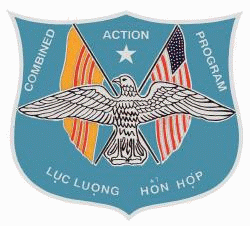
Excerpts From
Hau Nghia
Part 2
by John P. Vann

|
Excerpts From |
These concerns, continually voiced by Lansdale in Saigon and Hilsman in Washington, were shared by Hau Nghia veteran Daniel Ellsberg, who was filing increasingly pessimistic reports with Robert McNamara and National Security Advisor Walt Rostow. They ultimately were also expressed by the third highest-ranking general in the Marine Corps, Victor "Brute" Krulak, formerly a bitter critic of the "other war." After the Ia Drang campaign, Krulak accurately diagnosed that the enemy would henceforth "seek to attrit U. S. forces through the process of violent close-quarters combat which tends to diminish the effectiveness of our supporting arms." He also accurately assessed Giap's thinking: that the cost of protracted war that had led the French to gamble and lose at Dien Binh Phu and into surrender at Geneva would also produce an American withdrawal. Only by winning the war in the villages by its own small unit operations in support of aggressive pacification program did America stand any chance of success. (Emphasis added)
With the help of Marine Commandant Lewis Walt, Krulak managed to present his views
to President Johnson and the Joint Chiefs of Staff. The command position in Washington and
at Westmoreland's headquarters, however, was unshakable. The war was merely the result of
an extension of the Asian tentacle of the Soviet communist octopus. The so-called
"social revolution" seemingly sought by the guerrillas, like their publicly
touted goals of anti-imperialism, unification and independence, were mere figments of
communist propaganda. The only value associated in mastering the communist tactics of the
so-called Vietnamese "people's war of national liberation" was to detect and
exploit weaknesses in what were assumed to be typically communist and thus rigid modus
operandi, such as the seeming shift toward third stage warfare in 1965. In their view, the
moment regular forces of the People's Army of North Vietnam began to shoulder more combat
responsibilities than the guerrillas, the war ceased to be a revolutionary struggle and
became a conventional war in which guerrillas were irrelevant. This confusion of the
enemy's ends with its means led Westmoreland, President Johnson and Robert McNamara to
believe that bombing the North and the Ho Chi Minh Trail could bring the war to a halt,
for it was erroneously assumed that the enemy in the south, like any conventional American
force, could not long survive with its supply lines thus severed. It also locked
Westmoreland into a search and destroy campaign against a force that used guerrilla
tactics to avoid his searches and employed conventional forces when the terms of
engagement enabled it, not the Americans, to be the destroyer.
Westmoreland announced his war of attrition by declaring that "We'll just go on
bleeding them until Hanoi wakes up to the fact that they have bled their country to the
point of national disaster for generations." Yet, it was his command, as Krulak
predicted, that was first forced to scramble for resources.
Return To: